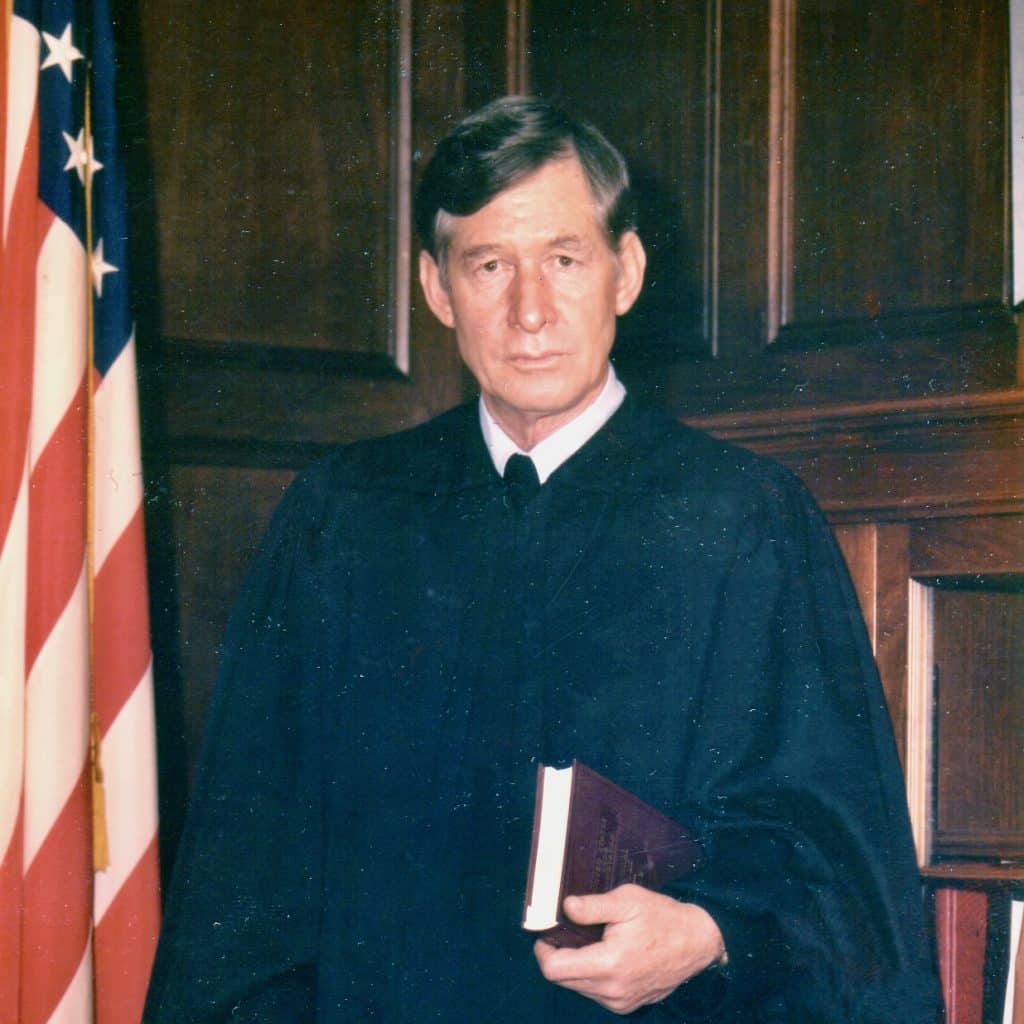
Judge Frank Minis Johnson
Frank Minis Johnson was born in 1918 in an area of northern Alabama known for independent thinking. Back in 1861, his home county, Winston county, opposed seceding from the Union—declaring itself the “Free State of Winston” during the Civil War. Johnson’s life would embody that independent streak. He went to college at the University of Alabama where he was a classmate of George Wallace, the staunch opponent of civil rights reforms who would go on to become governor of the state.
Johnson served in the Army during World War II. When he returned to the United States, he became active in politics as a Republican and a strong supporter of President Eisenhower. At the time, Alabama was run by segregationist Democrats.
In 1955, Johnson was appointed by President Eisenhower to be a U.S. District Court judge for the Middle District of Alabama. This was a year after the U.S. Supreme Court ruled against school segregation in the Brown vs. Board of Education decision. Soon after his appointment, Johnson ruled in favor of Rosa Parks, striking down bus segregation as unconstitutional. The ruling also concluded that separate but equal were violations of the 14th Amendment.
In his judicial career, Judge Johnson made numerous rulings that effectively moved to desegregate the south and the nation as a whole. He overturned Governor Wallace’s ban of the proposed 52-mile march from Selma to Montgomery, enabling Dr. Martin Luther King Jr. to lead what became a powerful impetus for passage of the Voting Rights Act of 1965. He saw to it that civil rights cases would be heard in federal courts rather than state courts to ensure a fairer hearing. Other pioneering decisions opened up voting rights to those who had been denied them. He mandated that mental hospitals become less crowded and understaffed. He issued a similar ruling on prisons.
For his courageous opinions, Judge Johnson received voluminous hate mail and phone calls. Crosses were burned in his yard. His mother’s home was firebombed. Governor Wallace called him an “integratin, carpetbaggin, scalawaggin, bald-faced liar.” The Klan referred to him as “the most hated man in Alabama.” But in spite of the hatred and vitriol, Judge Johnson would not let words and actions interfere with his integrity.
Integrity is a matter of being honest and having strong moral principles of fairness to others. People with integrity are honest and true to their values, even when they may be putting themselves at risk. They show respect for others and yet are willing to take a stand against the current of prevailing public opinion when that public opinion is unjust. They are careful to consider where our society might have gone wrong and are willing to speak up to call us to fully embody our ideals.
Just imagine our nation with leaders who are teachers of what is fundamentally right even when societal pressures go against those teachings. Just imagine how our society would have evolved without the integrity of someone like Judge Johnson. Judge Johnson did much to help end the rule of Jim Crow in America. Now, as the US Supreme Court has moved to dismantle the protections of the Voting Rights Act and other key components of civil rights, what stands in the way of reassembling Jim Crow? Where are the Judge Johnsons of our own time?
* * *
“The civilizing function of a judge has been defined, I think, as ‘the removal of a sense of injustice.’”—Judge Frank Minis Johnson
This is part of our “Just Imagine” series of occasional posts, inviting you to join us in imagining positive possibilities for a citizen-centered democracy.



